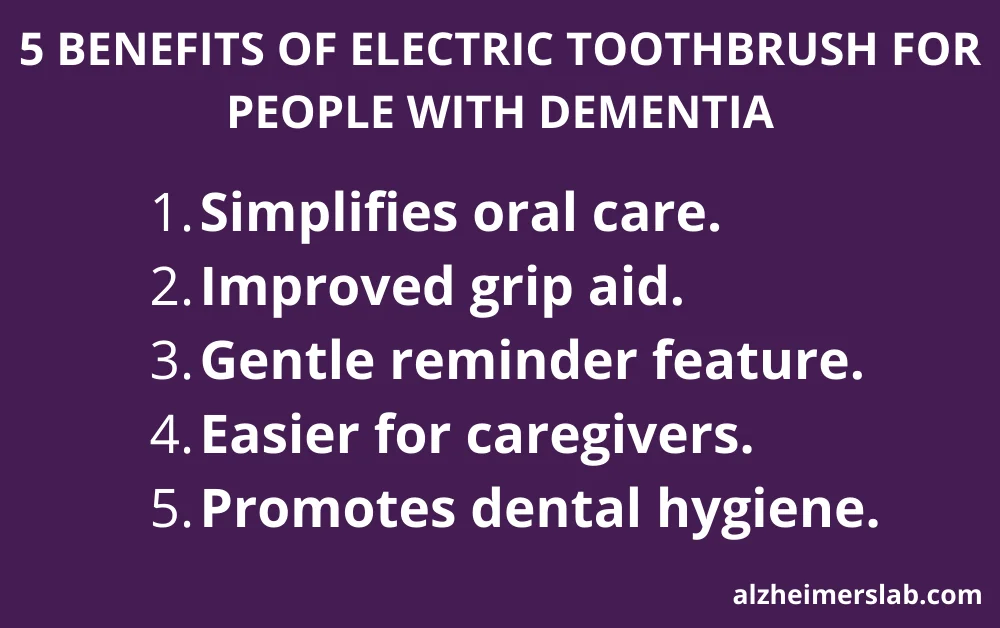Can a Person with Dementia Use an Electric Toothbrush?
You might be wondering, “Can a person with dementia use an electric toothbrush?” Well, let’s dive into this together, in plain and simple terms.
Taking care of our teeth is something we’ve done since we were kids. But as we grow older, some of us face challenges like dementia. It can make everyday tasks, even brushing our teeth, a bit tricky. But fear not, because there are solutions, like using an electric toothbrush. We’ll explore if this nifty device can help.
Understanding Dementia and Its Challenges
First off, let’s get on the same page about dementia. It’s a brain condition that affects memory, thinking, and daily functioning. As a result, simple tasks can become confusing or forgotten. So, when it comes to brushing teeth, there are a few hurdles:
Memory: People with dementia might forget to brush their teeth altogether. We all have moments when we forget things, right? Imagine if it happened more often.
Coordination: Dementia can affect hand-eye coordination. It’s like trying to put a square peg in a round hole; things just don’t line up as they used to.
Confusion: Sometimes, folks with dementia might not recognize a toothbrush or understand how to use it. It’s like handing someone a TV remote when they want to make toast.
The Electric Toothbrush Solution

Now, let’s talk about electric toothbrushes. You’ve probably seen them in stores or even used one yourself. They’re pretty nifty! But can they help with the challenges dementia presents?
Simplified Operation
One thing that’s great about electric toothbrushes is their simplicity. You just press a button, and they do the work. No need to remember complex brushing techniques or keep track of time. It’s like having a little toothbrush buddy!
Improved Grip
Remember how we mentioned coordination issues? Well, electric toothbrushes often come with chunky handles that are easier to hold onto. It’s like having a big, comfy handle on a coffee mug.
Gentle Reminder
Some electric toothbrushes even have timers that vibrate or pause after two minutes, the recommended brushing time. This can be a friendly reminder for both you and me to brush properly. It’s like a little alarm clock for our teeth!
Trying it Out – Start Simple
Before diving into the electric toothbrush world, it’s a good idea to start simple and inexpensive. You know those battery-powered spin brushes? They’re a great way to test the waters. They cost less than an electric toothbrush, and you can see if your loved one with dementia tolerates using one.
Give it a try, and if it works, you can consider investing in an electric toothbrush later. It’s like testing a new recipe with a small batch before cooking a big dinner.
Caregiver’s Role
Now, if you’re taking care of someone with dementia, your role is crucial here. Let’s discuss how you can help them with their dental care.
Supervision
Sometimes, your loved one might need a bit of supervision. You can hand them the toothbrush and toothpaste and show them what to do. It’s like guiding a friend through a new video game.
Setting a Routine
Creating a daily routine can work wonders. Brushing teeth at the same time each day can become a habit. It’s like having a regular coffee break at work; it becomes part of the day.
Encouragement
Encouragement goes a long way. Positive words and smiles can make brushing your teeth a more pleasant experience. It’s like cheering on a friend in a marathon; your support means everything.
The Final Verdict – Can They Use It?
So, can a person with dementia use an electric toothbrush? The answer is, it depends. It depends on their specific situation, their comfort level with the device, and the support they have.
Electric toothbrushes can be a fantastic aid for individuals with dementia. They simplify the process, provide a better grip, and offer reminders. However, it’s essential to start simple and consider the individual’s needs.
Remember, neighbor, the key is to adapt to their preferences and abilities. Dental care is vital, and with a little patience and the right tools, we can make it easier for our loved ones with dementia to maintain those bright smiles.
Now, I want to hear from you. Do you have experience with a loved one using an electric toothbrush while dealing with dementia? What tips or tricks have worked for you? Or maybe you have questions or concerns.

